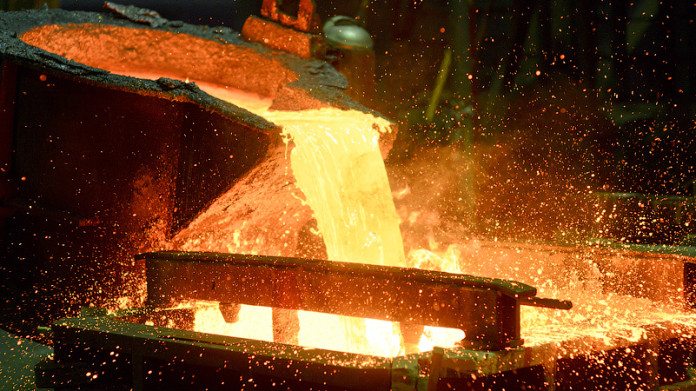
ANGLO American Platinum (Amplats) will complete construction of smelting facilities in Zimbabwe despite a pact between the government and Pallinghurst Resources that obliges platinum miners in the country to use its proprietary technology.
Miningmx reported in May that the Zimbabwean government would in the next five years promulgate new legislation that would require platinum miners, including Amplats and Impala Platinum, to provide up to 1.2 million ounces of platinum concentrate to a company jointly owned by Zimbabwe, Pallinghurst and the Industrial Development Corporation (IDC).
The technology, known as Kell, has been tested in pilot plants using concentrate from Pallinghurst’s Sedibelo Platinum Mines. It differs from traditional smelting technology in that it is a chemically-based leach process.
Zimbabwe would own 51% of the joint venture through its Zimbabwe Mineral Development Company (ZMDC), while Pallinghurst and the IDC would own 49% through a subsidiary, Kelltech.
As Zimbabwe controls the joint venture, platinum miners would fulfil their indigenisation requirements by supplying concentrate to the facilities. In terms of indigenisation, foreign miners operating in Zimbabwe are required to ‘sell’ 51% of their assets to local Zimbabweans, and community organisations.
In selling concentrate to Kell smelters, foreign platinum miners would also avoid a proposed 15% duty on the export of unrefined platinum which is due to be enforced by the Zimbabwean government in 2018.
However, Chris Griffith, CEO of Amplats, said in an interview on July 24 that his company was exempt from the agreement because the Zimbabwean government recognised it had started construction on its own smelter at its Unki mine.
“We met with the mines minister [Walter Chidhakwa] on Monday last week (17 July) who said there was enough production in Zimbabwe from other sources to put into the Kell technology,” said Griffith. “So they are not seeking for Unki to provide concentrate to the Kell. We are just trying to get that in writing”.
“There is still a lot of uncertainty [about the technology] and quite frankly, I am massively sceptical about it, especially the capital they say it requires to build,” said Griffith. “We have looked at this technology in the past and we came to the conclusion it wasn’t feasible.”
Keith Liddell, a director of Sedibelo Platinum Mines, and who was directly involved in developing the Kell technology, said that between four to five plants would be constructed in Zimbabwe at a cost of between $90m to $100m per module, each smelter producing up to 250,000 oz of refined platinum group metals (4E).
“One of the benefits of the technology is that it uses a fifth of electricity required of a conventional platinum group metal refinery,” said Liddell.
“This means a more efficient use of Zimbabwean electricity which is not abundant at the moment,” he added. The modular nature of the technology also means refineries can be built closer to mining premises and at a tenth of the cost of a refinery which Frandsen estimated were often “north of $1bn”.









